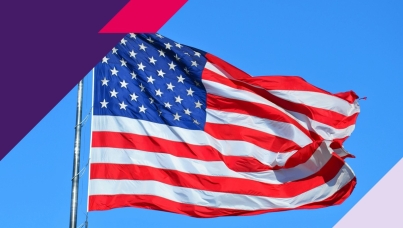Online Health Information Seekers More Likely to Treat Allergies, Depression, Insomnia
September 26, 2005, New York, NY--Patients who seek advice from health sites on the Internet are more likely than non-seekers to purchase drugs to treat symptomatic illnesses such as depression and insomnia, according to the latest findings from Ipsos PharmTrends174, a syndicated tracking study of consumer health behavior by Ipsos, the global survey-based marketing research firm.
The latest wave of the ongoing tracking survey--data collected from May through July 2005--shows that consumers who research health information online are more likely to buy drugs to treat allergies (48% of users versus 41% of non-users), depression (20% versus 13%), and insomnia (14% versus 10%). Patients requiring treatment for asymptomatic and often life-threatening illnesses such as high blood pressure and heart conditions are less likely to treat their conditions with prescription (Rx) or over-the-counter (OTC) drugs: 65% of households who access health websites purchased Rx's to treat high blood pressure, while 79% of non-users purchased medications; 12% of Internet information-seekers purchased heart medications, compared to 21% of non-users.
"Internet health sites are allowing consumers to control their health outcomes, making it easier for them to self-diagnose symptomatic illnesses and understand their conditions," says Barbara Bertner, Vice President, Ipsos Insight's PharmTrends. "Conversely, patients suffering from asymptomatic illnesses must rely on their doctor's expertise and office or hospital tests to accurately diagnose their condition and recommend appropriate therapies."
The results of the diary-based survey also reveal that 52% percent of wired households have researched general health information online. Further, 63% of households have used the web to get health-related information on a specific condition or disease in the past three months, and 36% have looked to the Internet for information on a specific Rx or OTC drug. Moreover, those who have participated in this information-seeking behavior are more likely to request a specific drug from their physician (19% versus 15%).
Households that use the Internet as a health research channel are also more likely to purchase prescription pain medications than over-the-counter (OTC) drugs: 62% filled a prescription for arthritis medication, versus 55% of consumers who do not use the Internet as a source of health information; 80% purchased Rx back medication, versus 68% of other respondents; and 66% got a script for general pain relief, compared with 59% for the rest of the population.
"Part of the reason for the increased consumption of prescription medications by Internet-using health information seekers is likely the proliferation of websites sponsored by pharmaceutical companies and online and televised direct-to-consumer advertising," added Bertner. "But also, consumers using Internet-based health information may be more likely to request prescription medications from their physicians because they are engaged, active health consumers, who inform themselves of their treatment choices and drug benefits and side effects before visiting their doctor."
Among those respondents who visited health-related websites, most (51%) went directly to the pharmaceutical company website or drug-specific website to research their new prescriptions. Users also frequented hospital and physician sites (44%), government sites (43%), retailers (41%), and online magazine and newspapers (40%) for Rx-specific information. Respondents were less likely to rely on sites dedicated to a specific condition or disease (37%), general health information sites (37%), and their HMO or insurance company's site (34%).
Those respondents using the Internet to help in their health and wellness choices tended to consume slightly more drugs than others did, averaging 7.8 prescription or OTC purchases, versus 7.6 units. Accordingly, the out-of-pocket amount wired households spent was slightly higher too, with $114 spent on Rx and OTC drugs between May and July, compared to $103 in other households.
For more information on this press release, please contact: Barbara Bertner Vice President Ipsos Insight Behavioral Tracking Practice [email protected] 516.507.3357
PharmTrends174 is a registered trademark of Ipsos Insight, Inc.
Ipsos PharmTrends Methodology
Ipsos PharmTrends174 syndicated tracking service captures both prescription fulfillment and over-the-counter purchasing data through a longitudinal and continuous consumer panel of 16,000 households that is representative of the U.S. census composition. Each month, panelists report their prescription and over-the-counter purchases for the treatment of a full spectrum of medical conditions (general and specific). This monthly tracking service began in 1997.
To learn more about Ipsos PharmTrends174 please visit: http://www.ipsosinsight.com/KnowledgeCenter/SyndicatedReports/PharmTrends.aspx.
Ipsos
Ipsos is a leading global survey-based market research company, owned and managed by research professionals. Ipsos helps interpret, simulate, and anticipate the needs and responses of consumers, customers, and citizens around the world.
Member companies assess market potential and interpret market trends. They develop and build brands. They help clients build long-term relationships with their customers. They test advertising and study audience responses to various media. They measure public opinion around the globe.
Ipsos member companies offer expertise in advertising, customer loyalty, marketing, media, and public affairs research, as well as forecasting, modeling, and consulting. Ipsos has a full line of custom, syndicated, omnibus, panel, and online research products and services, guided by industry experts and bolstered by advanced analytics and methodologies. The company was founded in 1975 and has been publicly traded since 1999. In 2004, Ipsos generated global revenues of e605.6 million ($752.8 million U.S.). Visit www.ipsos.com to learn more about Ipsos' offerings and capabilities.
About Ipsos Insight
Ipsos Insight, the flagship marketing research division of Ipsos in the U.S., has industry specialists serving companies in the following sectors: consumer products; technology and communications; health and pharmaceuticals; financial services; agrifood; energy and utilities; and lottery and gaming.
Ipsos Insight provides custom and tracking research services to domestic clients, as well as U.S.-based multinationals. It offers concept and product testing, package testing, attitude and usage studies, omnibuses, tracking systems, brand equity, price optimization, segmentation, marketing models, advanced analytics, and global research. Ipsos Insight is an Ipsos company, a leading global survey-based market research group. To learn more, please visit www.ipsosinsight.com



